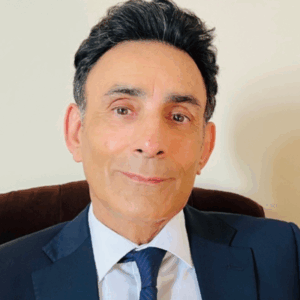

Feeling trapped by racing worries one day and heavy exhaustion the next? Our anxiety treatment in Lexington, KY bridges that gap with a personalized anxiety treatment program you can start close to home.
Whether you need the structure of Partial Hospitalization (PHP), the flexibility of Intensive Outpatient (IOP), or lighter weekly Outpatient (OP) check-ins, you’ll meet clinicians who fine-tune medication, teach coping skills, and track progress in real time.
If symptoms escalate, we can arrange seamless transfers to trusted anxiety treatment centers that are inpatient and welcome you back for step-down care once you’re stable. Ready to trade overwhelm for balance?
Anxiety and depression often travel together, so treatment targets both the racing mind and the heavy mood.
At Lexington Addiction Center, psychiatrists manage antidepressants or anti-anxiety meds. At the same time, therapists guide Cognitive Behavioral Therapy (CBT) and Dialectical Behavior Therapy (DBT) to reframe negative thoughts and teach emotion-regulation skills.
Because programs are outpatient, you can continue living at home, practicing new habits in everyday settings, while still meeting with clinicians several times a week for check-ins. Group sessions foster peer support, while individual counseling delves into triggers.
Wellness classes, such as yoga or mindfulness, complement care. In short, anxiety and depression treatment in Lexington, KY blends medication, skills training, and lifestyle changes into one cohesive depression treatment plan that meets you where you are and grows with your progress.
Anxiety disorders create intense feelings of dread, panic, and fear among those with the disorder. Like those with depression, people with anxiety disorders struggle in their daily lives.
They can often go to extreme lengths to avoid situations that trigger their anxiety symptoms. This avoidance behavior impacts their ability to attain their goals or even take care of themselves.
Everyone feels some type of anxiety in their everyday life. In fact, anxiety is a normal feeling in response to stress or facing unknown situations. However, when a person has an anxiety disorder, they have symptoms in relation to normal and expected events of everyday life.
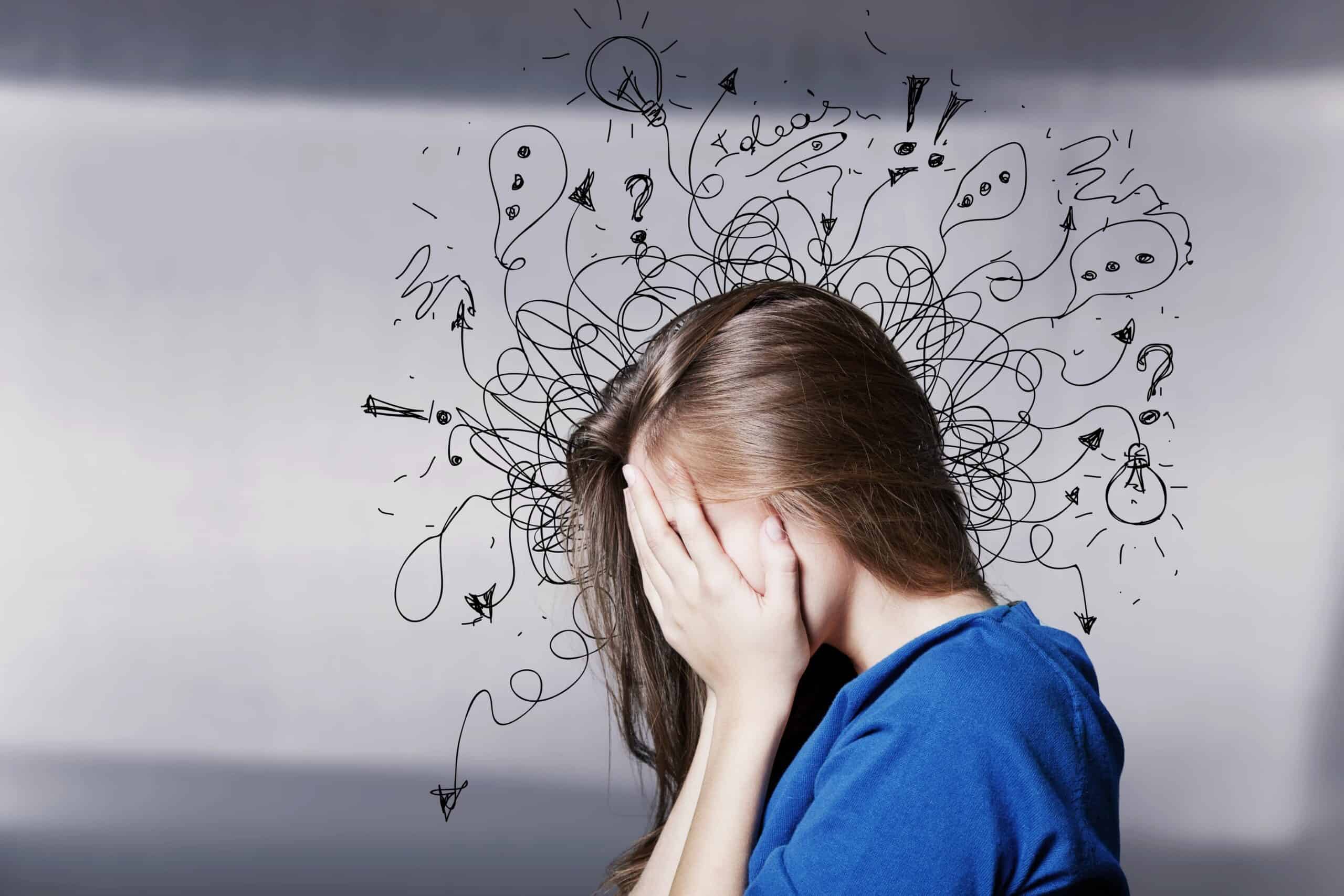
A dedicated anxiety recovery center wraps you in support that a single office visit can’t match. You’ll meet regularly with a psychiatrist for medication adjustments, nurses who monitor your sleep, appetite, and heart rate, and master-level therapists who guide CBT, DBT, or family therapy sessions.
Care coordinators handle scheduling and insurance, so paperwork stress doesn’t spike your symptoms. Because every provider shares notes in real time, subtle shifts like nighttime restlessness or rising irritability are caught early, and your anxiety treatment plan is adjusted before panic returns.
Wellness classes (such as yoga) and peer groups that normalize your experience, and you have a network designed to restore calm, and keep it.
Everyone worries now and then, but certain signals say it’s time for professional help:
If any of these rings true or if anxiety drives you to misuse alcohol or drugs, reach out to a local center for anxiety treatment. Early support can shorten recovery time, protect relationships, and provide you with the tools to reclaim your life.
How It Supports Anxiety Treatment:
Reframes catastrophic “what-ifs” into balanced thoughts, reducing daily worry.
How It Supports Anxiety Treatment:
Adds emotion-regulation and distress-tolerance skills for panic-prone moments.
How It Supports Anxiety Treatment:
Gradual, clinician-guided practice that desensitizes feared situations or sensations.
How It Supports Anxiety Treatment:
Teaches you to overcome anxious thoughts and act in alignment with your core values.
How It Supports Anxiety Treatment:
Low-impact ways to slow breathing, lower heart rate, and anchor attention to the present.
How It Supports Anxiety Treatment:
On-site psychiatrist fine-tunes SSRIs, SNRIs, or non-sedating anxiolytics; labs checked in-house.
How It Supports Anxiety Treatment:
Real-time heart-rate variability training that shows your body how calm it feels.
Absolutely. If panic becomes unmanageable, such as continuous attacks, safety concerns, or new psychotic symptoms, we coordinate a rapid hand-off to partner hospitals that offer inpatient anxiety stabilization and 24/7 nursing.
Our team arranges transportation, records, and stays in touch to ensure that discharges flow seamlessly from IOP to OP. Once the acute phase typically lasts 3–7 days, you step down to transition to a maintenance track, keeping the same psychiatrist and primary therapist for seamless continuity.
This bridge approach means you receive high-level monitoring when needed, and need-based practice as soon as it’s safe, thereby eliminating gaps that can trigger relapse or emergency readmission.
Roughly 35 percent of people with an anxiety disorder also battle alcohol or drug misuse, and many carry unprocessed trauma that keeps their nervous system on high alert.
Our anxiety treatment programs start with dual-diagnosis screening: therapists add EMDR or trauma-focused CBT when flashbacks fuel panic, and medical staff can initiate
Medication-Assisted Treatment (MAT) for cravings alongside SSRIs or beta-blockers. Group sessions link anxiety triggers to substance urges, while yoga and breathwork teach body-based grounding that medications alone can’t deliver.
By treating trauma, addiction, and anxiety in a single, coordinated plan, you avoid conflicting advice and build a stronger, relapse-resistant foundation for long-term recovery.
Expect a clear routine. The PHP program for depression meets five days a week, 25–30 hours total. Mornings start with mindfulness or gentle yoga, followed by skills groups (CBT, DBT) and a midday medication check. You’ll have two one-on-one sessions each week, plus an evening family group.
Transitioning to IOP reduces the workload by 9–15 hours across three to five days, consisting of daytime work or classes, followed by late-afternoon therapy blocks and peer support circles.
Nurses track sleep, appetite, and side effects throughout, and your psychiatrist reviews meds every other week. Because this outpatient model lets you sleep at home, you can practice new coping skills in real life and debrief the next day.
Anxiety disorders include the following:
While everyone has fears or worries about things like health, finances, and relationships, those with GAD experience these feelings almost all the time. When a person has excessive worries about nearly every aspect of their life for about six months, they could have GAD.
Social anxiety is different than personality traits like shyness or introversion. For example, some people might not prefer certain social environments. However, this preference doesn’t mean they have a disorder. In fact, those with social anxiety feel a sense of dread or panic among other people.
Some people with anxiety have panic attacks when triggered. These attacks affect them physically. The person might have a rapid heartbeat, struggle to breathe, and feel as if they are going to die.
When anxiety symptoms are triggered by specific fears, the person could have a phobia. Common phobias include fear of enclosed spaces, crowds, spiders, or flying. While everyone experiences fear, a person with phobia-related anxiety disorders goes out of their way to avoid triggers. For instance, if they fear crowds, they might rely on others to shop for them, as they fear being in a crowded store.
In addition, other mental health disorders feature anxiety symptoms. Sometimes, obsessive-compulsive disorder (OCD) and post-traumatic stress disorder (PTSD) are also considered anxiety disorders. However, since OCD and PTSD have unique features and triggers, they typically require specialized treatment for recovery.
People with anxiety disorders display physical, mental, and behavioral symptoms. These symptoms can impact a person’s self-esteem and confidence as they often fear situations that most people don’t. When left untreated, a person’s anxiety can worsen over time.
Symptoms of anxiety often occur when a person is presented with a triggering event, person, or situation. Symptoms include the following:
For a diagnosis, these symptoms must interfere with a person’s ability to maintain relationships, pursue life goals, and function in everyday life. Like depression, anxiety disorders can vary among different types.
Often, these mental health disorders are treated with a combination of psychiatric medications and behavioral therapy. Anxiety and depression treatment in Lexington uses different approaches to help our clients build a plan that works for them.
We offer traditional therapies, like cognitive-behavioral therapy (CBT) as well as innovative techniques such as eye movement desensitization and reprocessing (EMDR). In addition, our treatment center offers holistic therapy to help clients find multiple pathways to health and wellness.
Since anxiety and depression are common triggers of substance abuse, we also have dual diagnosis treatment. This helps those with co-occurring mental health and substance use disorders manage both issues at the same time.
Most clients begin with a 30-day intensive phase, either PHP or a short inpatient stay, before moving into IOP for eight to twelve weeks. These staggered levels let you master skills while gradually introducing real-life applications.
After IOP, alumni groups meet monthly for ongoing accountability, and your psychiatrist continues medication maintenance every six to eight weeks.
Because no two anxiety treatment programs are identical, length adjusts to symptom severity, response to meds, and personal goals. Some people complete formal care in six weeks; others choose booster sessions or light treatment programs for anxiety every few months, similar to preventive health checkups.
Yes—finances shouldn’t block care. Our admissions team offers free, confidential insurance verification services for anxiety and depression treatment in Lexington, KY. We work with Anthem Blue Cross Blue Shield, Aetna, Cigna, Humana, UnitedHealthcare, and most PPO plans. We’ll explain deductibles and copays upfront.
No coverage? Ask about sliding-scale fees and zero-interest payment plans so you can focus on your healing, not worrying about billing.






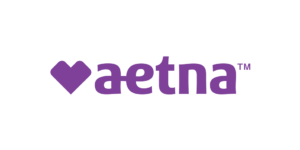
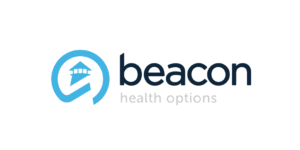
Speed matters when your mind won’t slow down. One phone call launches a same-day clinical assessment, and our intake team can guide you through a virtual paperwork packet in under an hour.
If your symptoms require a higher level of care, we’ll arrange safe transport to a partner hospital for immediate stabilization; otherwise, your anxiety treatment program in PHP or IOP can begin as early as the next business day, with your first therapy session and medication review already on the calendar.
We gauge success by practical, day‑to‑day improvements rather than dramatic one‑off stories. Within the first month of our anxiety program, most clients report sleeping through the night again and noticing a drop in heart‑pounding panic episodes.
As treatment continues, many feel confident enough to drive on highways, deliver work presentations, or attend crowded events they once avoided.
Follow-up surveys indicate that six months after graduation, most continue to practice breathing or grounding techniques they learned in therapy and check in with a peer-support group at least once a month. These steady, measurable wins demonstrate how structured anxiety treatment can turn constant worry into manageable background noise.
Relief is one call away. Start Anxiety and Depression Treatment in Lexington, KY today and let calm become your new normal.
Persistent worry, panic attacks, insomnia, physical tension, nausea, and avoiding social or work situations are key signs. If anxiety disrupts daily life for two weeks or more—or leads to substance use—it’s time to consider professional help.
While both may involve CBT, medication, and lifestyle support, anxiety treatment emphasizes calming techniques, exposure therapy, and reframing catastrophic thinking. Depression care focuses more on motivation, mood stabilization, and emotional processing.
Programs treat Generalized Anxiety Disorder (GAD), Panic Disorder, Social Anxiety, Specific Phobias, and OCD traits. Each condition receives tailored therapy and medication based on symptoms and functional impact.
Cognitive Behavioral Therapy (CBT), Dialectical Behavior Therapy (DBT), Exposure Therapy, ACT (Acceptance and Commitment Therapy), and mindfulness-based techniques are most effective. These help calm the nervous system and rewire thought loops.
Yes. On-site psychiatrists prescribe and manage medications like SSRIs, SNRIs, beta-blockers, or non-sedating anxiolytics. Your regimen is closely monitored and adjusted based on weekly feedback.
In PHP, you’ll attend yoga, CBT/DBT groups, individual therapy, and exposure labs 5 days a week. IOP runs 3 days a week with fewer hours, ideal for integrating work or school. Both include medication checks and peer support sessions.
Yes. For severe anxiety or panic crises, we arrange immediate admission to local inpatient stabilization units. Once stable, you transition to outpatient (PHP/IOP) with continuity of your care team.
Exposure therapy helps desensitize you to feared situations (e.g. crowds, driving) through gradual, clinician-guided practice. Over time, it reduces avoidance and panic.
Unprocessed trauma and substance misuse often heighten anxiety. We integrate trauma-focused CBT or EMDR, and provide MAT or relapse-prevention if needed—creating one comprehensive plan that addresses root causes and symptoms together.
Programs usually start with 30 days of PHP or inpatient care, followed by 8–12 weeks of IOP. Some continue with monthly check-ins or booster sessions. Duration is customized based on symptom relief and life goals.
Most clients start within 24 hours of calling. Same-day assessments and next-business-day therapy start dates are common. Inpatient coordination is available for urgent needs.
Yes. Many clients benefit from therapy, lifestyle changes, and grounding techniques alone. However, medication can offer faster relief when combined with other supports.
Many centers offer telehealth therapy and virtual medication check-ins. This is ideal for clients with transportation limits or who feel safer at home initially.
Mindfulness, breathing exercises, and yoga help calm the body’s stress response and train the mind to stay present. These techniques complement therapy and medication.
That’s okay—treatment plans are flexible. If needed, we adjust your level of care, reintroduce exposure therapy, or modify medications to keep progress on track.
Yes. Most accept Anthem, Aetna, Cigna, Humana, UnitedHealthcare, and other PPO plans. Free benefit checks and payment plans are available to remove financial barriers.
We track sleep quality, reduced panic attacks, improved confidence in daily life, and use of coping skills like CBT reframes or breathing techniques—both during care and in 6-month follow-ups.
Yes. IOP is designed to fit around work or school schedules. Sessions are held in the late afternoon or early evening to make balancing responsibilities easier.
Absolutely. Educating loved ones helps reduce home stressors, improve communication, and build a stronger support network for long-term stability.
Our center blends medication, therapy, trauma-informed care, and wellness—all in one integrated plan. With same-day access and continuity between inpatient and outpatient options, clients get fast, personalized, and sustained results.
Chronic anxiety can interfere with work, relationships, sleep, and overall quality of life. Constant worry, panic attacks, racing thoughts, and physical symptoms like rapid heartbeat or shortness of breath can feel overwhelming. At Lexington Addiction Center, we provide structured anxiety treatment in Lexington, Kentucky, including integrated care for individuals also struggling with substance use.
Many individuals use alcohol, benzodiazepines, or other substances to temporarily relieve anxiety, which often leads to dependence. Our team provides psychiatric evaluation, medication management when appropriate, and therapy focused on emotional regulation, coping skills, and stress management.
Recovery from anxiety requires more than avoidance — it requires evidence-based treatment and consistent support.
If anxiety is controlling your life or contributing to addiction, professional help is available right now.
Call Lexington Addiction Center for confidential admissions assistance and insurance verification. Regaining control starts with reaching out.
The information provided by Lexington Addiction Center is intended for general educational and informational purposes only and is not a substitute for professional medical advice, diagnosis, or treatment.
While Lexington Addiction Center offers mental health and behavioral health support services, our programs are not intended to replace care from a licensed psychiatrist, physician, or emergency medical provider. Individuals participating in our services should always seek the advice of qualified healthcare professionals regarding any mental health condition or medical concerns.
Lexington Addiction Center does not provide emergency or crisis services. If you or someone you know is experiencing a mental health emergency, suicidal thoughts, or is in immediate danger, please call 911 or contact the 988 Suicide & Crisis Lifeline immediately.
Participation in treatment services does not guarantee specific outcomes, and individual results may vary based on personal circumstances, clinical needs, and engagement in care.
By using our website or engaging in our mental health services, you acknowledge and agree that Lexington Addiction Center is not responsible for decisions made based on the information provided and that treatment should always be guided by qualified medical professionals.
For questions about our mental health programming or to determine whether our services are appropriate for your needs, please contact our admissions team directly.
All content published on Lexington Addiction Center website pages is provided for informational purposes only and should not be interpreted as medical, psychological, or legal advice. This information is not intended to diagnose, treat, cure, or prevent any disease or condition and should not replace consultation with licensed healthcare professionals.
Addiction is a chronic, relapsing medical condition that requires individualized care. Treatment approaches, detox protocols, and rehabilitation services vary depending on numerous factors unique to each individual. No information on this website should be relied upon to make treatment decisions without professional guidance.
If you are experiencing an emergency situation, including overdose, withdrawal complications, suicidal ideation, or immediate risk to yourself or others, call 911 immediately. Lexington Addiction Center does not provide emergency medical services online or via website communication.
Never attempt to discontinue substance use or begin detox without proper medical supervision. Withdrawal can cause serious medical complications. Any information regarding detoxification is general in nature and does not substitute for physician-directed care.
Insurance information presented on this website is intended solely to assist users in understanding potential coverage options. Coverage is subject to verification, medical necessity determinations, and policy limitations. Lexington Addiction Center encourages direct contact with our admissions specialists to confirm benefits and eligibility.
We do not guarantee treatment outcomes, length of stay, insurance approvals, or placement availability. Outcomes depend on numerous clinical and personal factors.
External links are provided for convenience and informational purposes only. Lexington Addiction Center assumes no responsibility for third-party content or practices.
Use of this website does not establish a doctor-patient or therapist-patient relationship. Recovery requires professional support and individualized care.
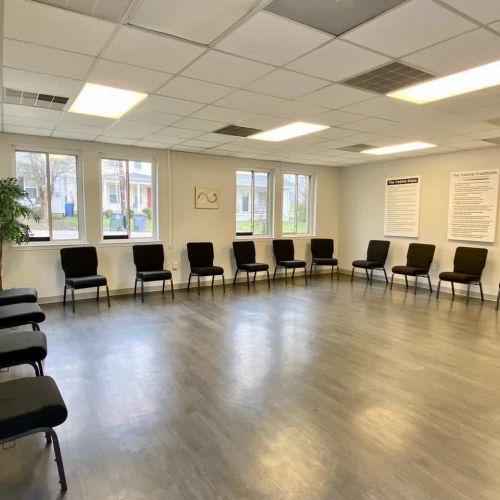





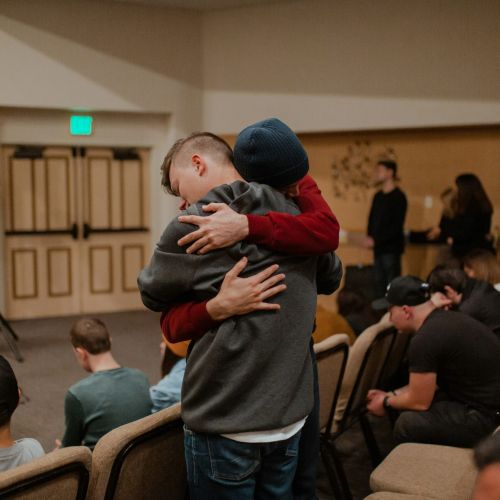

Get Family Support Now
We understand addiction affects the whole family. Our comprehensive family program helps rebuild trust and restore relationships.
Weekly Family Therapy Sessions
Educational Workshops
Support Groups
Communication Skills Training
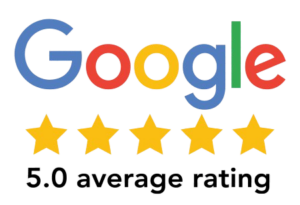
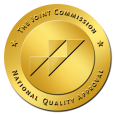



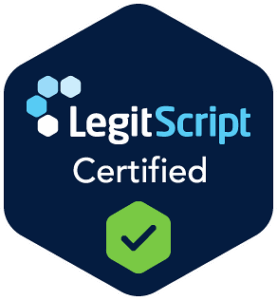

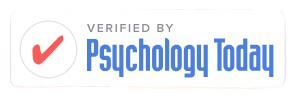


National Institute of Mental Health. (2024, December). Anxiety disorders. https://www.nimh.nih.gov/health/topics/anxiety-disorders National Institute of Mental Health
U.S. Preventive Services Task Force. (2023, June 20). Screening for anxiety disorders in adults: Recommendation statement. https://www.uspreventiveservicestaskforce.org/uspstf/announcements/final-recommendation-statement-screening-anxiety-disorders-adults (see also JAMA publication). USPSTF+1
National Institute for Health and Care Excellence. (2020). Generalised anxiety disorder and panic disorder in adults: Management (CG113). https://www.nice.org.uk/guidance/cg113 (full PDF: https://www.nice.org.uk/guidance/cg113/resources/generalised-anxiety-disorder-and-panic-disorder-in-adults-management-pdf-35109387756997). NICE+1
National Institute for Health and Care Excellence. (2013). Social anxiety disorder: Recognition, assessment and treatment (CG159). https://www.nice.org.uk/guidance/cg159 (full PDF: https://www.nice.org.uk/guidance/cg159/resources/social-anxiety-disorder-recognition-assessment-and-treatment-pdf-35109639699397). NICE+1
Zhu, J., Zhang, L., Lin, W., et al. (2023). Psychotherapies for generalized anxiety disorder in adults: A systematic review and network meta-analysis. JAMA Psychiatry, 80(1), 75–86. https://jamanetwork.com/journals/jamapsychiatry/fullarticle/2810866 JAMA Network
Carpenter, J. K., et al. (2022). Efficacy of cognitive behavioral therapy for anxiety-related disorders in adults: A meta-analysis of randomized placebo-controlled trials. Current Psychiatry Reports, 24(10), 571–582. https://link.springer.com/article/10.1007/s11920-022-01402-8 SpringerLink
Cochrane Collaboration. (2022, updated 2024). Pharmacological treatments in panic disorder in adults: A network meta-analysis. https://www.cochranelibrary.com/cdsr/doi/10.1002/14651858.CD012729.pub3/information (plain-language page: https://www.cochrane.org/evidence/CD012729). Cochrane Library+1
Anothaisintawee, T., et al. (2022). Drug treatment for panic disorder with or without agoraphobia: Systematic review and network meta-analysis. BMJ, 376, e066084. https://www.bmj.com/content/376/bmj-2021-066084 BMJ
World Health Organization. (2025). Anxiety disorders: Fact sheet. https://www.who.int/news-room/fact-sheets/detail/anxiety-disorders World Health Organization
American Psychological Association. (n.d.). Anxiety (topic overview). https://www.apa.org/topics/anxiety/ American Psychological Association
Cochrane Collaboration. (2021). Internet-based cognitive behavioural therapy with therapist support for anxiety in adults: Review of the evidence. https://www.cochrane.org/evidence/CD011565_internet-based-cognitive-behavioural-therapy-therapist-support-anxiety-adults-review-evidence

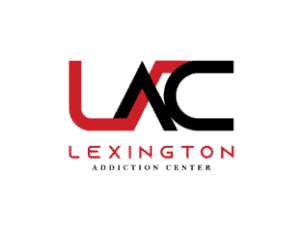
Addiction and co-occurring disorders don’t have to control your life. Lexington Addiction Center is waiting with open arms to give you the tools necessary for lasting change. Reach out to us today to learn more.